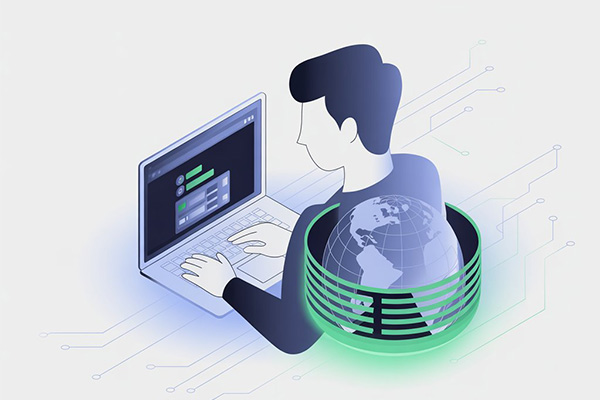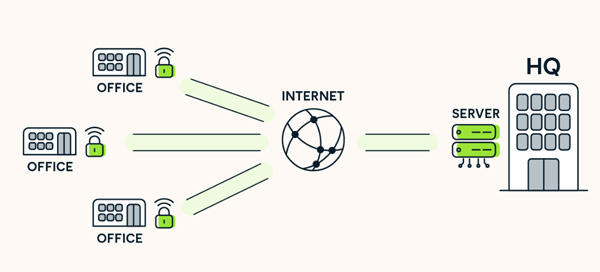Difference Between Proxy Server And VPN – A Beginner’s Guide
If you want to hide your IP address or access blocked content, you’ve probably heard of both proxy servers and VPNs. While they may seem similar, they work in different ways and are best suited for different needs.
Both proxy servers and VPNs hide your IP address, but VPNs offer a stronger and more complete level of security. While proxies only hide your IP for certain types of traffic, VPNs encrypt all of your internet data by establishing a secure connection between your device and the web.
In this guide, we’ll explain the differences between a proxy server and a VPN, so you can choose the right tool for your online privacy, security, and speed.

What Is a Proxy Server?
A proxy server acts as an intermediary between your device and the internet. It hides your IP address and can help you access region-restricted websites.
Works at the application level (e.g., just your browser or one app)
Does not encrypt your internet traffic
Often used for web scraping, ad verification, or bypassing geo-blocks
Can cache websites for faster load times
What Is a VPN?

A Virtual Private Network (VPN) creates a secure, encrypted tunnel between your device and the internet. This protects your data from hackers, ISPs, and other third parties.
Works at the system level, encrypting all traffic from your device
Ideal for public Wi-Fi protection and private browsing
Can bypass geo-restrictions for streaming and gaming
Stronger security but may be slightly slower than a proxy
Here’s a polished, clear rewrite of your detailed breakdown:
Proxy Servers:
Function: Serve as intermediaries between your device and the internet, masking your IP address for specific apps or websites.
Security: Provide basic IP masking but usually don’t encrypt your data, which can leave your activity open to interception.
Use Cases: Useful for bypassing geo-restrictions on particular sites or for activities like web scraping, where anonymity is needed only for specific tasks.
Speed: Generally faster than VPNs since they don’t encrypt traffic.
Cost: Many proxies are free but may log your data and sell it to third parties to monetize the service.
VPNs:
Function: Establish a secure, encrypted tunnel for all internet traffic, hiding your IP and protecting your data.
Security: Provide strong encryption that safeguards your data from hackers, ISPs, and other third parties.
Use Cases: Best for overall internet privacy, anonymous browsing, accessing geo-blocked content, and securing public Wi-Fi connections.
Speed: Can be slower than proxies due to the overhead of encrypting all traffic.
Cost: Mostly paid services, though many reputable VPNs offer free trials or limited free versions.
Proxy Server vs VPN – Key Differences
| Feature | Proxy Server | VPN |
|---|---|---|
| Encryption | ❌ No encryption | ✅ Encrypts all traffic |
| Scope | Application-specific | Entire device |
| Speed | Usually faster | Slightly slower |
| Security | Basic IP masking | Strong encryption + IP masking |
| Caching | Yes | No |
| Best For | Quick location masking, scraping, ad verification | Privacy, security, safe public Wi-Fi use |
Which One Should You Use?
Choose a Proxy Server if you need speed and only want to mask your IP for specific tasks like scraping or streaming region-restricted content.
Choose a VPN if you value security, privacy, and want to protect all your online activity.
Final Thoughts
Both proxy servers and VPNs hide your IP address, but VPNs offer stronger protection through encryption, while proxies are better for speed and specific tasks. For complete privacy, go with a VPN. For faster but lighter protection, a proxy server works well.
FAQs
1. Is a VPN better than a proxy?
Yes, a VPN provides encryption and better privacy protection, while a proxy only hides your IP.
2. Can I use a proxy and VPN together?
Yes, but it may slow down your connection. This setup is rarely necessary for most users.
3. Does a proxy make you completely anonymous?
No, it only hides your IP address but doesn’t encrypt your data.